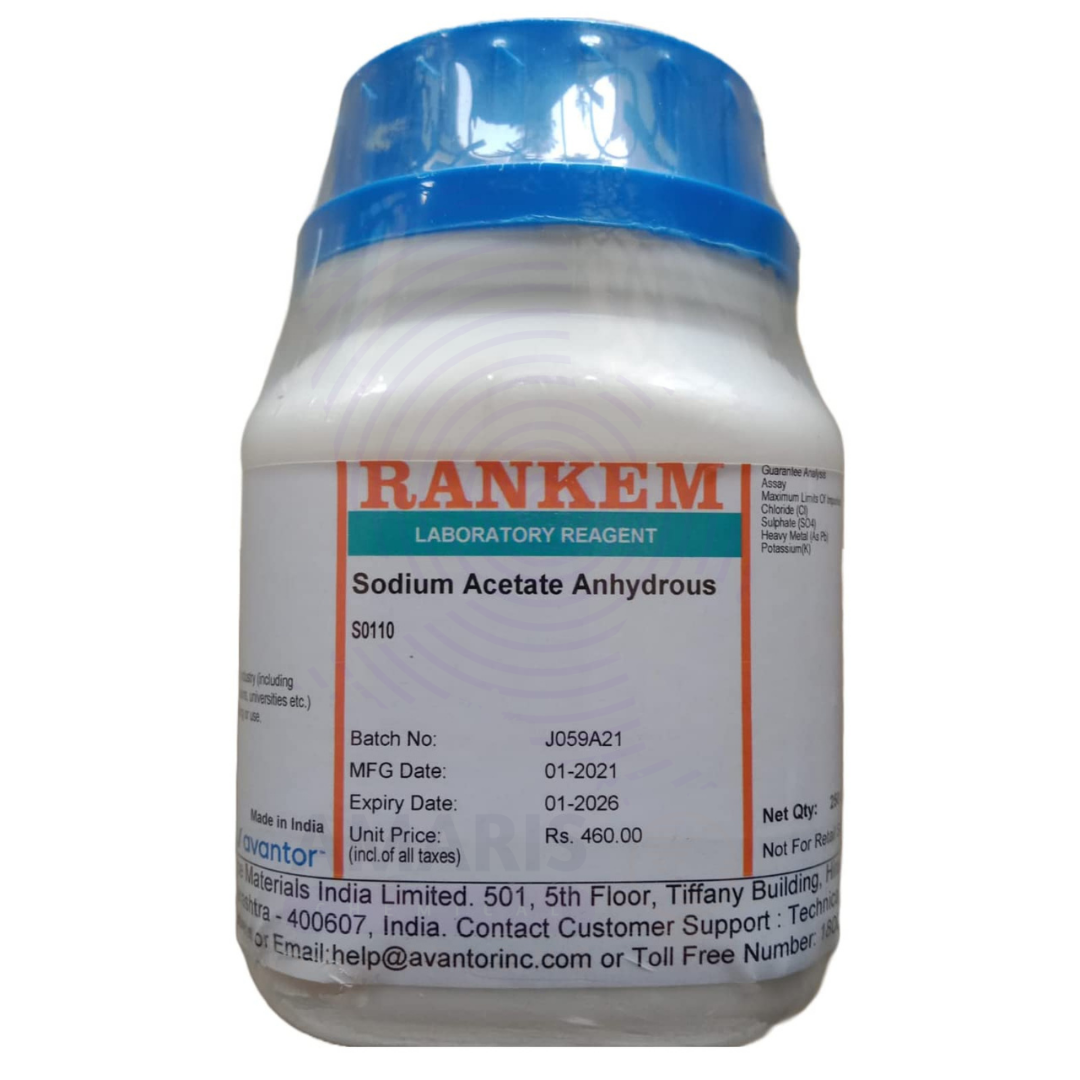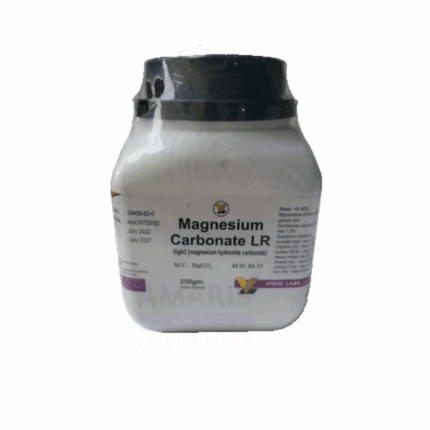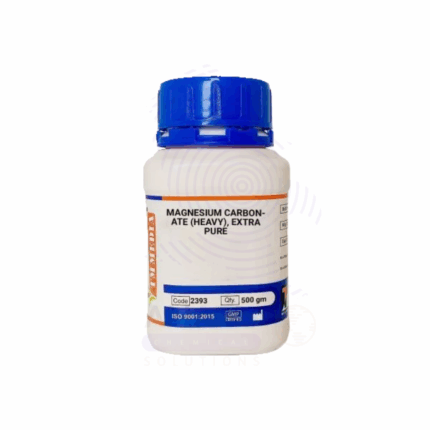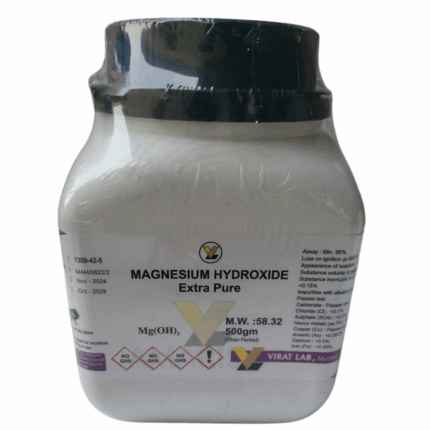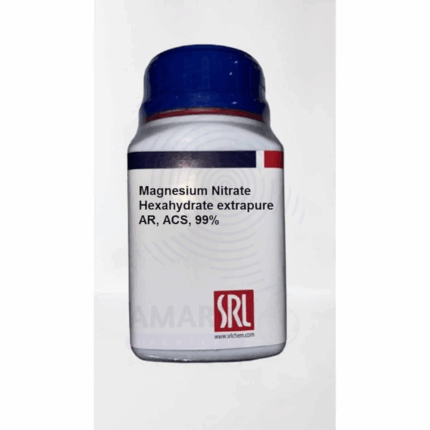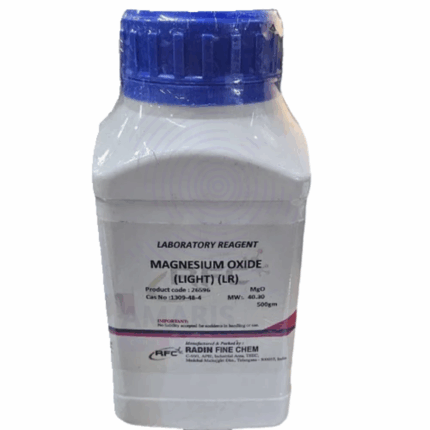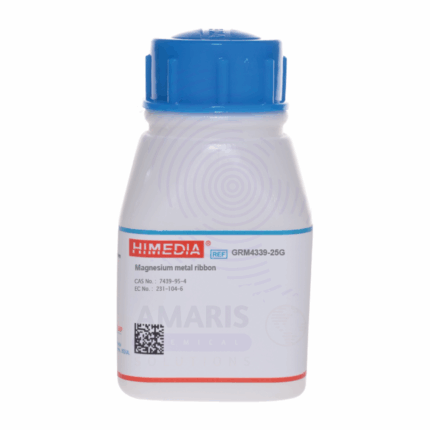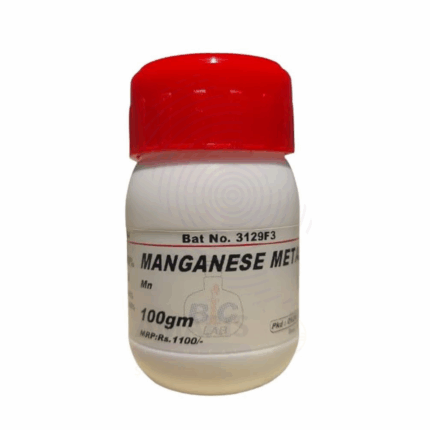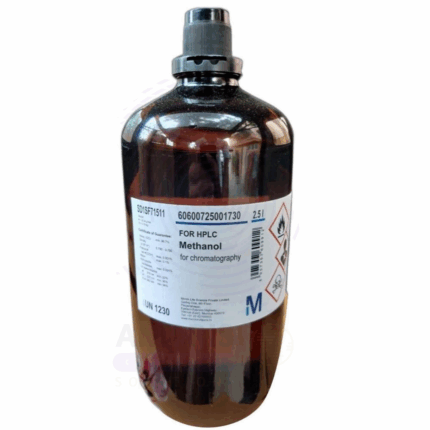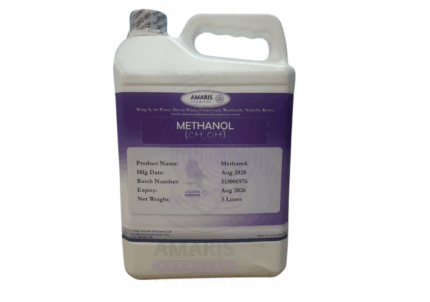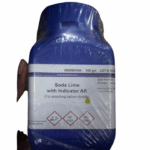

Sodium Acetate Anhydrous Extra Pure
$ 16.11 Original price was: $ 16.11.$ 15.98Current price is: $ 15.98.
Sodium Acetate Anhydrous Extra Pure is a high-purity white crystalline powder widely used as a buffering agent, reagent, and pH regulator in laboratory, industrial, and food applications. It has excellent solubility in water, making it valuable for biochemical processes, textile dyeing, and food preservation. This Extra Pure grade ensures minimal impurities, suitable for sensitive applications such as pharmaceutical formulations and analytical chemistry. Proper storage in dry conditions and handling with protective equipment are essential to maintain its quality and safety.
Sodium Acetate Anhydrous Extra Pure
PRIMARY USES
- Laboratory Applications
- Used as a buffering agent to maintain pH in biochemical and chemical reactions
- Acts as a reagent in organic synthesis and analytical chemistry
- Employed in buffer solutions for electrophoresis and chromatography
- Industrial Applications
- Utilized in textile printing and dyeing processes as a pH regulator
- Functions as a neutralizing agent in the production of acetic acid derivatives
- Used in leather tanning and textile processing for improved quality and color fastness
- Food Industry
- Acts as a food preservative and flavoring agent (E262) to control acidity and preserve freshness
SECONDARY USES
- Pharmaceutical Industry
- Used in some medicinal formulations as an alkalizing agent
- Component in effervescent salts and buffering agents in oral medications
- Deicing and Heating Pads
- Employed in heating pads and reusable hand warmers due to its exothermic crystallization properties
- Environmental Applications
- Used in wastewater treatment to neutralize acidic waste streams
1. Basic Identification Attributes
- Chemical Name: Sodium Acetate Anhydrous
- CAS Number: 127-09-3
- HS Code: 2915.31.00
- Molecular Formula: C₂H₃NaO₂
- Synonyms: Acetic acid sodium salt, Sodium ethanoate
2. Physical & Chemical Properties
- Physical State: White crystalline powder or granules
- Odor: Slight vinegar-like odor
- Melting Point: 324 °C (decomposes)
- Density: Approx. 1.53 g/cm³
- Solubility: Highly soluble in water (76 g/100 mL at 20 °C), slightly soluble in ethanol
- pH: Slightly alkaline in aqueous solution (pH ~8.5)
- Stability: Stable under recommended storage conditions
3. Safety & Hazard Attributes
- GHS Classification: Generally considered non-hazardous; mild irritant to eyes and skin
- NFPA Ratings: Health 1, Flammability 0, Reactivity 0
- Exposure Limits: No specific limits but avoid inhalation of dust and contact with eyes
- Reactivity: Stable, but reacts with strong acids releasing acetic acid vapors
4. Storage & Handling Attributes
- Store in a tightly closed container
- Keep in a cool, dry, well-ventilated place away from incompatible substances
- Avoid moisture absorption and contamination
- Use appropriate PPE: gloves, goggles, and dust mask if handling bulk powder
- Shelf life: Stable for years if kept dry and sealed
5. Regulatory & Compliance Attributes
- Approved for food, pharmaceutical, and industrial use
- Listed under REACH, TSCA, and other relevant chemical inventories
- Not classified as hazardous for transport
- Dispose of according to local environmental regulations
6. Environmental & Health Impact
- Low toxicity to aquatic life
- Biodegradable under normal environmental conditions
- Not classified as carcinogenic or mutagenic
SAFETY PRECAUTIONS
Personal Protective Equipment (PPE):
- Wear gloves and safety goggles
- Use dust mask if airborne dust is generated
- Protective clothing recommended for bulk handling
Handling:
- Avoid inhalation of dust
- Avoid contact with eyes and skin
- Wash hands thoroughly after handling
Storage:
- Store in dry, well-ventilated areas
- Keep containers tightly closed to avoid moisture uptake
FIRST AID MEASURES
Inhalation:
- Move to fresh air
- Seek medical attention if breathing difficulties occur
Skin Contact:
- Wash with soap and water
- Remove contaminated clothing
- Get medical advice if irritation develops
Eye Contact:
- Rinse immediately with plenty of water for at least 15 minutes
- Seek medical attention if irritation persists
Ingestion:
- Rinse mouth with water
- Do not induce vomiting unless advised
- Seek medical attention if symptoms appear
FIRE FIGHTING MEASURES
Flammability:
- Non-flammable solid
Extinguishing Media:
- Use water spray, foam, dry chemical, or CO₂
Hazardous Combustion Products:
- May emit irritating fumes including acetic acid on decomposition
Firefighter Protection:
- Use self-contained breathing apparatus and full protective gear


 Preservatives(food)
Preservatives(food) Flavor Enhancers
Flavor Enhancers Acidulants
Acidulants Sweeteners
Sweeteners Antioxidants
Antioxidants Colorants(food)
Colorants(food) Nutraceutical Ingredients (food)
Nutraceutical Ingredients (food) Nutrient Supplements
Nutrient Supplements Emulsifiers
Emulsifiers
 Collectors
Collectors Dust Suppressants
Dust Suppressants Explosives and Blasting Agents
Explosives and Blasting Agents Flocculants and Coagulants
Flocculants and Coagulants Frothers
Frothers Leaching Agents
Leaching Agents pH Modifiers
pH Modifiers Precious Metal Extraction Agents
Precious Metal Extraction Agents
 Antioxidants(plastic)
Antioxidants(plastic) Colorants (Pigments, Dyes)
Colorants (Pigments, Dyes) Fillers and Reinforcements
Fillers and Reinforcements Flame Retardants
Flame Retardants Monomers
Monomers Plasticizers
Plasticizers Polymerization Initiators
Polymerization Initiators Stabilizers (UV, Heat)
Stabilizers (UV, Heat)
 Antifoaming Agents
Antifoaming Agents Chelating Agents
Chelating Agents Coagulants and Flocculants
Coagulants and Flocculants Corrosion Inhibitors
Corrosion Inhibitors Disinfectants and Biocides
Disinfectants and Biocides Oxidizing Agents
Oxidizing Agents pH Adjusters
pH Adjusters Scale Inhibitors( water)
Scale Inhibitors( water)
 Antioxidants(cosmetic)
Antioxidants(cosmetic) Emollients
Emollients Fragrances and Essential Oils
Fragrances and Essential Oils Humectants
Humectants Preservatives
Preservatives Surfactants(cosmetic)
Surfactants(cosmetic) Thickeners
Thickeners UV Filters
UV Filters
 Fertilizers
Fertilizers Soil Conditioners
Soil Conditioners Plant Growth Regulators
Plant Growth Regulators Animal Feed Additives
Animal Feed Additives Biostimulants
Biostimulants Pesticides (Herbicides, Insecticides, Fungicides)
Pesticides (Herbicides, Insecticides, Fungicides)
 Active Pharmaceutical Ingredients (APIs)
Active Pharmaceutical Ingredients (APIs) Excipients
Excipients Solvents(pharmaceutical)
Solvents(pharmaceutical) Antibiotics
Antibiotics Antiseptics and Disinfectants
Antiseptics and Disinfectants Vaccine Adjuvants
Vaccine Adjuvants Nutraceutical Ingredients (pharmaceutical)
Nutraceutical Ingredients (pharmaceutical) Analgesics & Antipyretics
Analgesics & Antipyretics
 Analytical Reagents
Analytical Reagents Solvents(lab)
Solvents(lab) Chromatography Chemicals
Chromatography Chemicals Spectroscopy Reagents
Spectroscopy Reagents microbiology-and-cell-culture-reagents
microbiology-and-cell-culture-reagents Molecular Biology Reagents
Molecular Biology Reagents Biochemical Reagents
Biochemical Reagents Inorganic and Organic Standards
Inorganic and Organic Standards Laboratory Safety Chemicals
Laboratory Safety Chemicals Specialty Laboratory Chemicals(Special Laboratory Equipment)
Specialty Laboratory Chemicals(Special Laboratory Equipment)
 Demulsifiers
Demulsifiers Hydraulic Fracturing Fluids
Hydraulic Fracturing Fluids Scale Inhibitors(oil)
Scale Inhibitors(oil) Surfactants(oil)
Surfactants(oil) Drilling Fluids
Drilling Fluids
 Dyes and Pigments
Dyes and Pigments Bleaching Agents
Bleaching Agents Softening Agents
Softening Agents Finishing Agents
Finishing Agents Antistatic Agents
Antistatic Agents
 Admixtures
Admixtures Waterproofing Agents
Waterproofing Agents Sealants and Adhesives
Sealants and Adhesives Curing Compounds
Curing Compounds Concrete Repair Chemicals
Concrete Repair Chemicals Anti-Corrosion Coatings
Anti-Corrosion Coatings
 Surfactants(cleaning)
Surfactants(cleaning) Builders
Builders Enzymes
Enzymes Solvents (Cleaning)
Solvents (Cleaning) Fragrances
Fragrances
 Electronic Chemicals
Electronic Chemicals Catalysts
Catalysts Lubricants
Lubricants Photographic Chemicals
Photographic Chemicals Refrigerants
Refrigerants Automotive chemicals
Automotive chemicals Pyrotechnic Chemicals
Pyrotechnic Chemicals
 Biodegradable Surfactants
Biodegradable Surfactants Bio-based Solvents
Bio-based Solvents Renewable Polymers
Renewable Polymers Carbon Capture Chemicals
Carbon Capture Chemicals Wastewater Treatment Chemicals
Wastewater Treatment Chemicals
 Pigments
Pigments Solvents(paint)
Solvents(paint) Specialty Coatings
Specialty Coatings Binders/Resins
Binders/Resins Additives
Additives Driers
Driers Anti-Corrosion Agents
Anti-Corrosion Agents Functional Coatings
Functional Coatings Application-Specific Coatings
Application-Specific Coatings
 Leavening Agents
Leavening Agents Dough Conditioners
Dough Conditioners Flour Treatments
Flour Treatments Fat Replacers
Fat Replacers Decoratives
Decoratives Preservatives(baking)
Preservatives(baking)
 Plasticizers & Softeners
Plasticizers & Softeners Reinforcing Agents
Reinforcing Agents Adhesion Promoters
Adhesion Promoters Vulcanizing Agents
Vulcanizing Agents Antidegradants
Antidegradants Blowing Agents
Blowing Agents Fillers & Extenders
Fillers & Extenders Accelerators & Retarders
Accelerators & Retarders